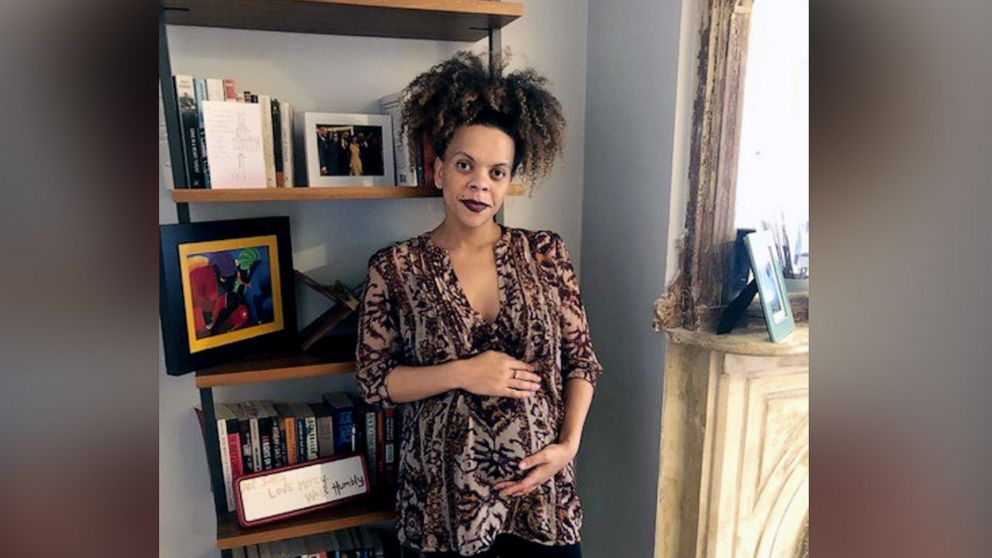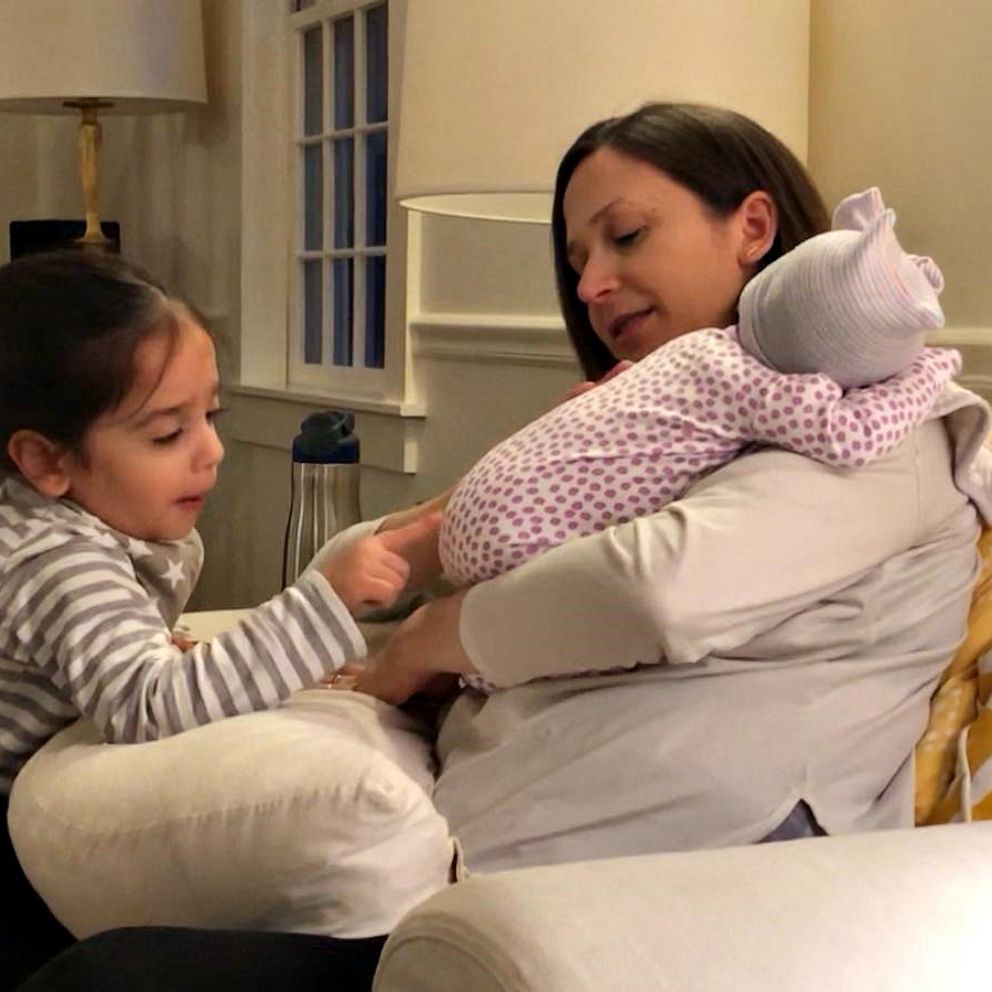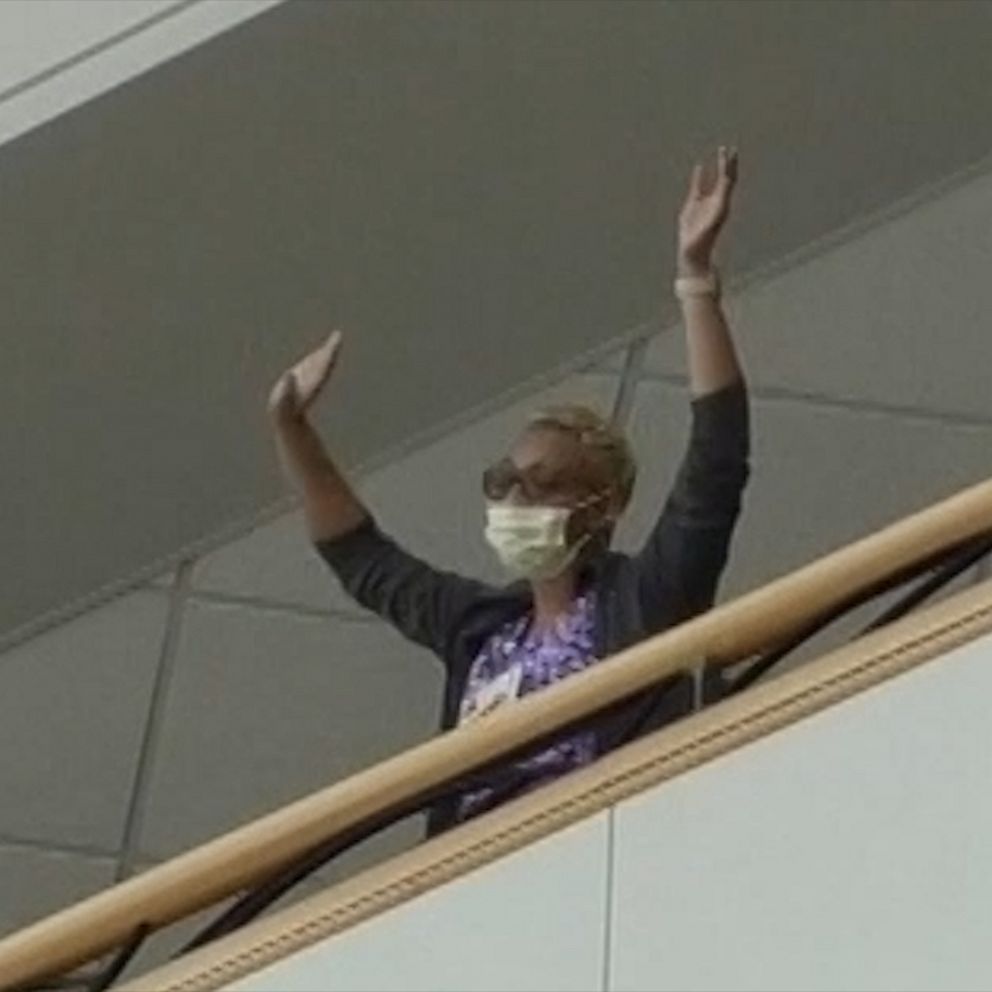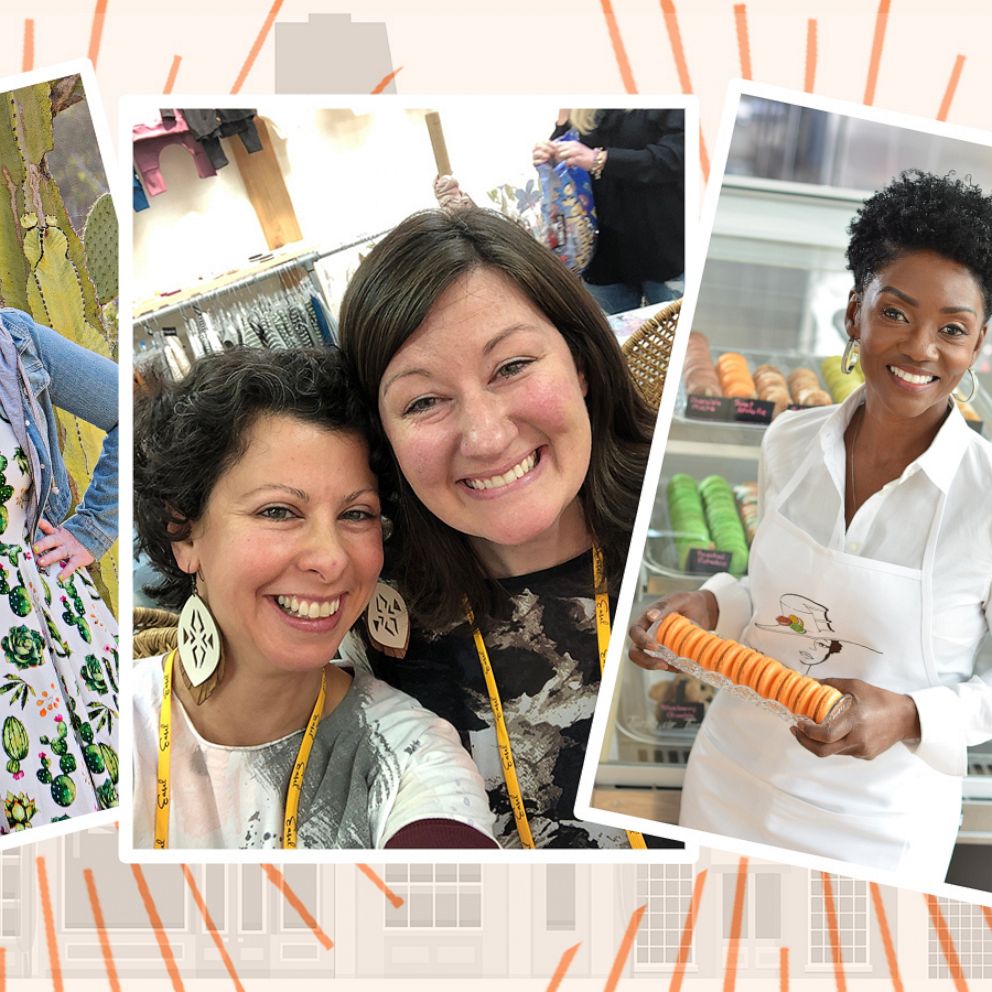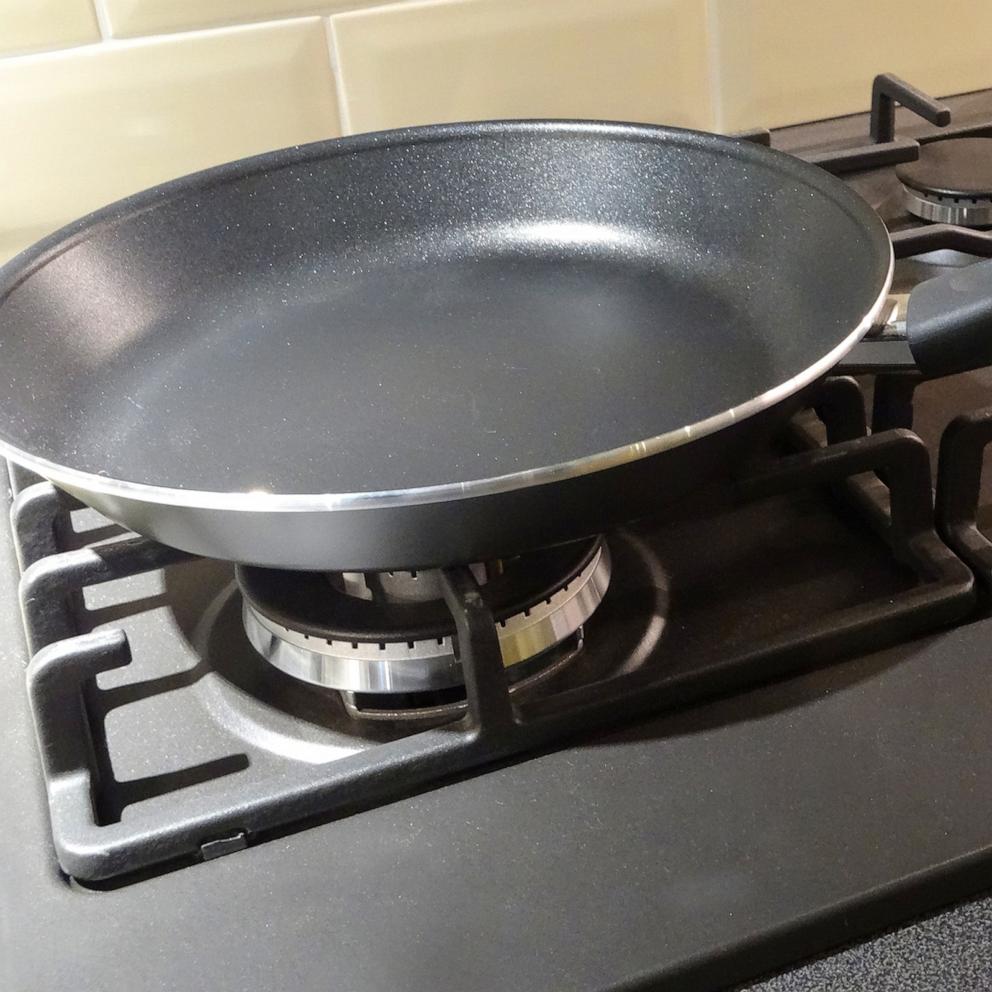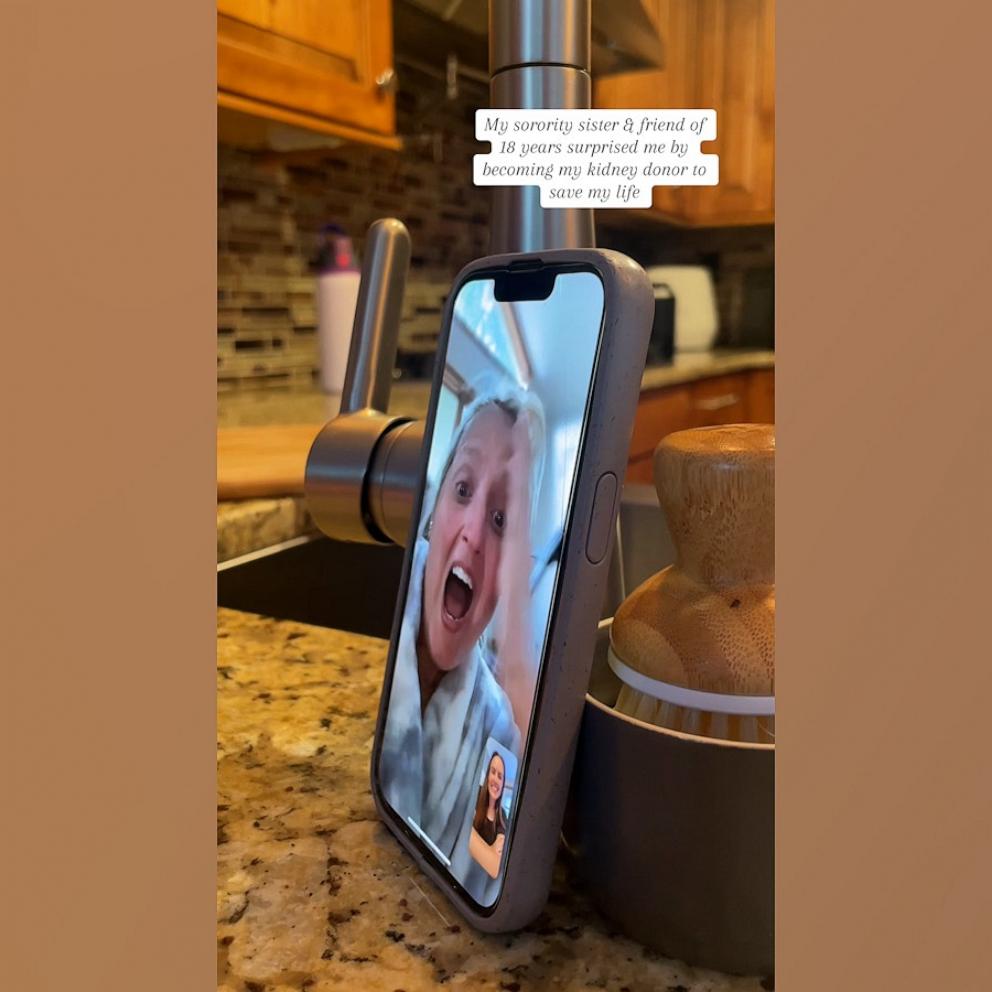I'm black and pregnant during the coronavirus pandemic and this is why I'm scared
Marbre Stahly-Butts, a 34-year-old woman in Brooklyn, spent most of her pregnancy planning to ensure she did not become a statistic in the maternal mortality crisis in the U.S., a crisis that disproportionately affects black women.
"It's something throughout the pregnancy process has really scared me a lot," Stahly-Butts, a lawyer, told "Good Morning America," referring to data that shows black women in the U.S. die during or in the months after giving birth two-and-a-half times more often than white women and three times more often than Hispanic women.
"[My partner and I] interviewed OBGYNs, asked them about why they thought there was this difference in mortality rates and what they did in their practice to make sure they weren't recreating that," she said. "We also hired a doula pretty early on because we've seen a lot of data that indicated that having a doula and an advocate at the hospital made a huge difference in terms of outcomes for black women specifically."
Then, in the third trimester of her pregnancy, the coronavirus pandemic hit, upending Stahly-Butts' carefully thought out birthing plan and adding even more anxiety to what has already been a stressful pregnancy for her as a black woman aware of the risks.
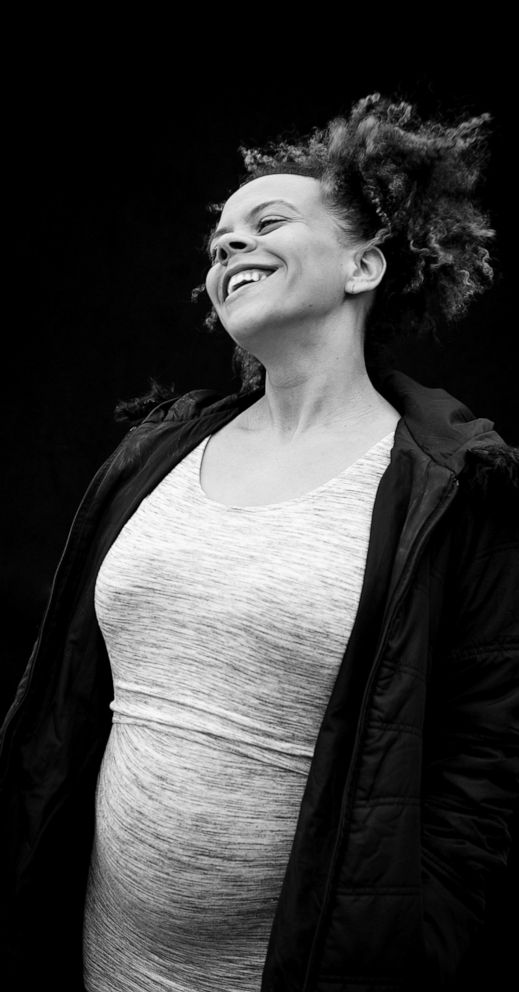
"There's normal anxiety that comes with being a first-time mother and then anxiety around pregnancy," she said. "And then add onto that anxiety around this disease and what it means for me and the baby, and then just the general anxiety where it's a real moment where lots of people we love are in crisis."
Because COVID-19 is a new virus, there are only a few published scientific reports on whether pregnant women are more susceptible than the general population.
The coronavirus is infecting black communities and killing their residents at a disproportionate rate across the country, according to several states' analysis of data. In New York City, where Stahly-Butts lives, the coronavirus is killing black and Latino people at twice the rate as white people, according to data released this week by city officials.
Because of restrictions placed on visitors at the hospital she was planning to deliver in, Stahly-Butts learned she would have to choose between having her partner or her doula in the delivery room with her. She also became concerned about reports that newborn babies were quarantined after delivery if the mother tested positive for COVID-19 or was showing symptoms.
"For me, that was kind of the breaking point," said Stahly-Butts. "It felt like we were powerless."
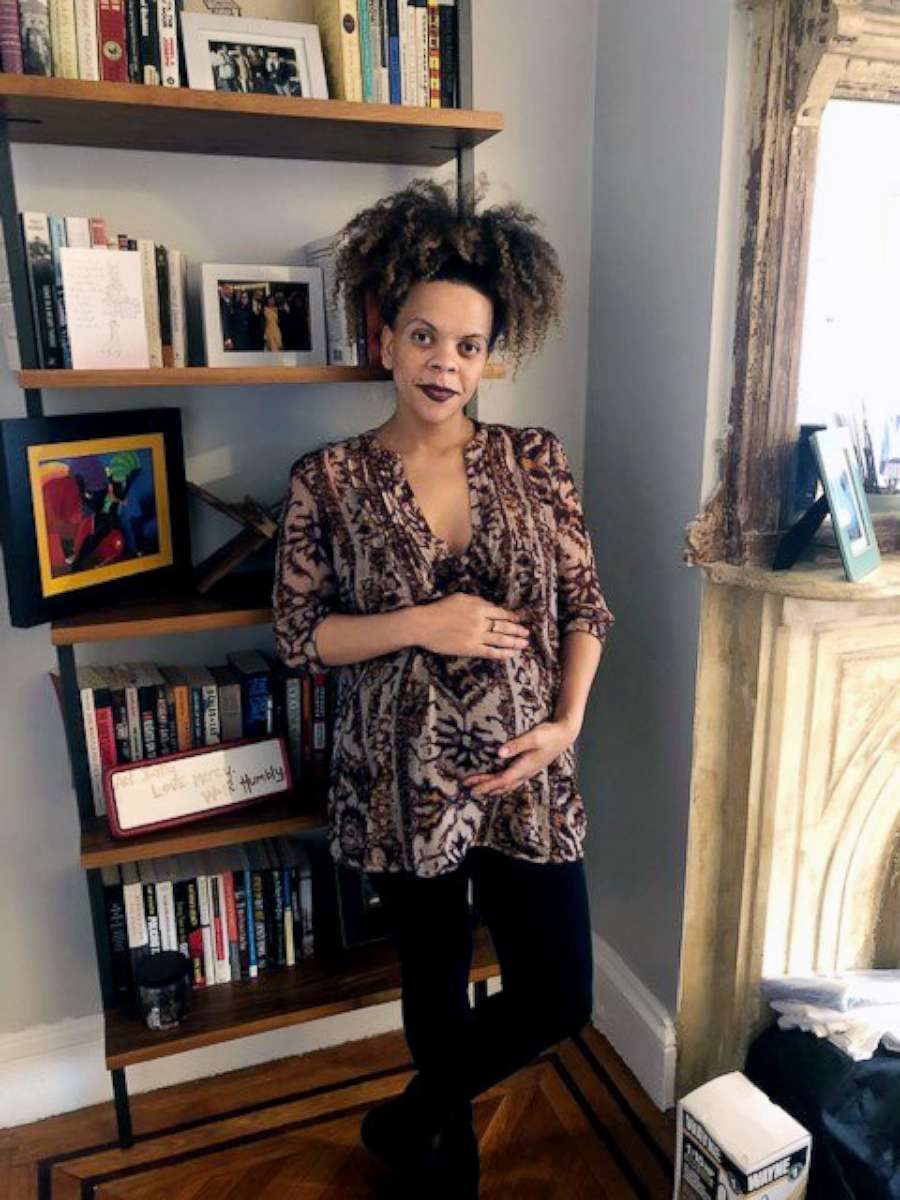
At 37 weeks pregnant, Stahly-Butts and her partner made the decision to do a home birth with a midwife and doula present.
Tune into ABC at 1 p.m. ET and ABC News Live at 4 p.m. ET every weekday for special coverage of the novel coronavirus with the full ABC News team, including the latest news, context and analysis.
While most planned home births go on without complications, research suggests they are associated with a higher risk of infant death and seizures than planned hospital births, according to the Mayo Clinic. For the mother, the main risk factor in a home birth is related to potentially deadly bleeding.
"Hospitals are not safe for black women," said Stahly-Butts. "Because of long standing racism and systemic failures in and out of the healthcare system, hospitals are sites of death and trauma for many black birthing mothers."
"I'm really blessed and lucky that I got to make a choice about how I wanted to undertake my maternal care," she said.
The stress faced by Stahly-Butts and other black women pregnant during the coronavirus pandemic comes as the nation marks Black Maternal Health Week, a week designated to put a spotlight on the epidemic of black women dying in pregnancy-related deaths, an epidemic that affects all black mothers.
Black mothers with advanced professional degrees, such as a master's degree or higher, have a greater chance of infant mortality compared to white women whose highest education level is the eighth grade, according to a 2016 study by the Brookings Institution.
Black maternal health advocates are calling on Congress to pass the Black Maternal Health Momnibus Act of 2020, a package of nine bills that focus on everything from funding to technology to help black moms survive.
What black pregnant women can do for best outcomes
On the ground, experts like Dr. Melissa Simon, director of the Center for Health Equity Transformation at Northwestern University Feinberg School of Medicine, are focused on researching the effects of COVID-19 on black pregnant women and getting the word out that hospitals remain safe places for them to deliver their babies.
"It's totally legitimate for any pregnant woman let alone black pregnant women to feel fear or uneasiness or some anxiety about having to go to a hospital right now," Simon, also the vice chair for clinical research at Feinberg School of Medicine's department of obstetrics and gynecology, told "GMA." "But, no matter what, it is still safer to go to a hospital to deliver a baby than it is to be at home."
Experts say that with emergency systems overtaxed because of the coronavirus, women who birth at home may not be able to get immediate help.
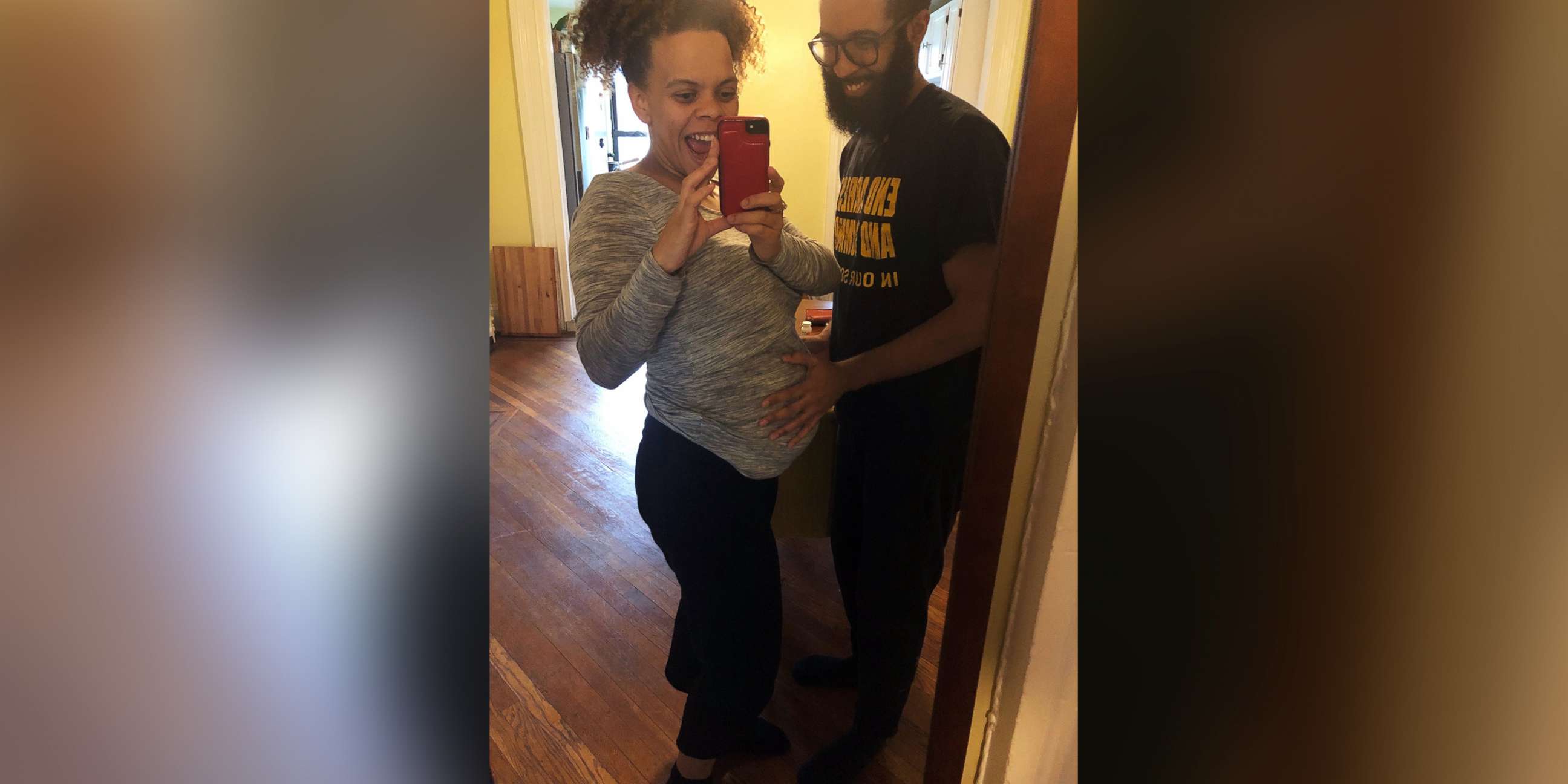
Hospitals are also allowing pregnant women to have their doula or partner present during birth via video or phone calls, which Simon hopes helps to ease some anxiety for black women especially.
"People are FaceTiming or using other ways through the phone to connect with their loved ones or a support person like a doula," she said. "Some people are choosing to bring their doula with them to the hospital and FaceTiming their partner."
Regardless of who is or is not with them in the hospital, Simon said she wants black women to know that they are "not alone."
"You as a patient on a labor and birthing unit do not deserve to be treated with discrimination," she said. "If you don't feel like you are being heard, you can keep asking for another provider, another nurse. Keep asking."
What to know about coronavirus:
- How it started and how to protect yourself: Coronavirus explained
- What to do if you have symptoms: Coronavirus symptoms
- Tracking the spread in the U.S. and worldwide: Coronavirus map
Pregnancy-related deaths are defined as the death of a woman during pregnancy or within a year of the end of pregnancy, according to the U.S. Centers for Disease Control and Prevention (CDC). Simon stressed that black women need to carefully monitor their health and be willing to ask for help after they give birth too.
"If you're feeling down or feeling stressed out, if there's violence in the home or you're having headaches or visual changes or feel like your blood pressure is getting high, all of those warrant a call with your health care provider," she said. "Please reach out."
